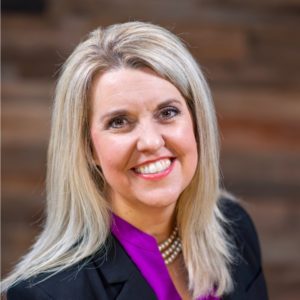The Hidden ROI of AI in Higher Ed Marketing Campaigns
Explore the real ROI of AI in higher ed marketing—from faster content to better targeting and smarter budget use.
Branding
For higher ed marketers, multi-generational marketing is simply part of the job as your messaging needs to reach both students, their parents, and even their grandparents.
As yet another generational shift is upon us, Generations Z and Alpha are coming up into the college student ranks.
One of the most fascinating things about these upcoming generations is the increasing involvement of their parents and grandparents in the education decision.
Older generations have always been influential in the prospective student’s decision, but for most prospective students, it has been a subtle factor overall.
But as attention spans shrink, the number of voices involved in the education decision-making process is growing.
From now on, it is multi-generational marketing’s time to shine!
 Jennifer McChord, Vice President of Enrollment & Marketing at Asbury University, joins us on The Higher Ed Marketer podcast to talk with us about how Asbury is making the big shift to multi-generational marketing and how that has been a game-changer for them.
Jennifer McChord, Vice President of Enrollment & Marketing at Asbury University, joins us on The Higher Ed Marketer podcast to talk with us about how Asbury is making the big shift to multi-generational marketing and how that has been a game-changer for them.
Ready or not, multi-generational marketing is a reality for all of us in education marketing.
Jennifer explains.
We are in an eight-second attention span world. Our messages have to be concise and more impactful than ever.
In addition to that, we’re in a five-generation workplace.
So we have to be excellent in an eight-second world while also connecting to each person [in each generation], [adjusting our message to] how they hear things differently.
This, of course, can be a huge challenge.
Thankfully, Jennifer had some insights to share with us on how to do exactly that.
As with most universities, Asbury’s traditional residential student population is migrating from millennials to Gen Z and Generation Alpha students.
Jennifer shared how they have been adapting their messaging for Gen Z and beyond.
So if you’ve learned anything about Gen Z, one of the things that is so important to them is customization.
One thing about Gen Z that we really have to understand is that what they really enjoy is a customized experience.
Think about what they’ve done from the crib. They are technology natives. They knew how to order Amazon, next day delivery, or even same day delivery right before I even knew what it was!
They understand quickly how to customize the feeds on their phones and their home screens. Everything is customized to what they want.
So how do we take that same customized message into higher ed?
We need to make sure they understand that there are lanes, regulations, accreditations, and qualifications to get this degree. But where it makes sense, how can we customize it right?
This is a profound insight into how Generation Z thinks.
To some degree, Gen Z prospective students must feel like they have some kind of flexibility or autonomy in their academic pursuit.
How can you do this while coloring within the lines of your program’s requirements?
We realized very quickly that our tagline was very similar to a lot of universities that were marketing to millennials a few years ago. For Asbury University, it was “Start here. Impact the world.”
For millennials, that’s a beautiful tagline, because they are wired [that way]. They want to impact the world.
Gen Z looks a lot like millennials, but they’re just a shade off.
They want to customize their world. They want to write their own story.
They want to find people that will help them get where they want to go on their journey, and they want those people to stay with them now or for a lifetime.
So we shifted from a millennial [tagline] “Start here. Impact the world.” to a Gen Z [tagline] “For the journey of a lifetime.”
It’s so important to kind of customize those messages for the members of different generations.
It’s a different world. Students are growing up with more and more access to the technology you and I use every day as professionals.
For example, when they visit your website, many of them are thinking of how they could have done a better job of it.
That’s how good they are naturally with online and other digital technologies!
To make their multi-generational marketing a success, Jennifer and her team distilled the research and insights they had gathered about each of the generations to whom they were marketing.
With these buzzwords in hand, they can better train their strategists and creatives on the team.
[Even if] the Gen Z student has been attracted to your university, you also have to attract the Gen X parent or the older millennial parents.
If you’re in admissions, you’ll see every day that Gen Z has a large number of grandparents that are raising Gen Z students.
But we’re also working with a lot of baby boomers as the grandparent is actually raising that student.
[That means] we have to be very good at connecting with each one of those audiences.
When I’m training our staff on the different generations and how you really talk to them up and down the line, we focus on one word per generation.
So the buzzword for Gen Z is “customized.” They want that customized experience.
Millennials are the next generation, and “impact” is the buzzword that catches their attention. They are a little bit older than Gen Z, and they really want to impact the world.
So, if we can show them how they can impact the world doing what they’re doing right now, it lets them know that you know them.
The next is my generation, the smallest generation alive today. The boomers are on one end of us and millennials on the other.
Gen X wants to “level up.” So how can I show these parents that this education is going to help their student move to the next level?
“Level up” is a buzzword for Gen X.
Then for a baby boomer, they’re really wanting to leave a legacy.
They want to know how this education helps their students and themselves leave a legacy [for succeeding generations], so that they will be able to move forward.
And in our case, we have a lot of grandparents and alumni that want to ensure that the legacy of Asbury stays true to our mission [as a private Christian university].
Like all of our blog post reviews of The Higher Ed Marketer podcasts, there’s so much more to learn in the podcasts themselves.
Listen to our interview with Jennifer McChord to get even more insights into:
Then you’ve got to know how to write for the web. That’s why we want to send you our popular ebook: Writing for the Web: 7 Secrets to Content Marketing Success for Education Marketers!
With this helpful resource, you’ll learn how to:
In short, you’ll be able to write the copy that makes your digital marketing strategy work for you. Download your copy today!
Featured image via asbury.edu
Subscribe to The Higher Ed Marketer podcast today!